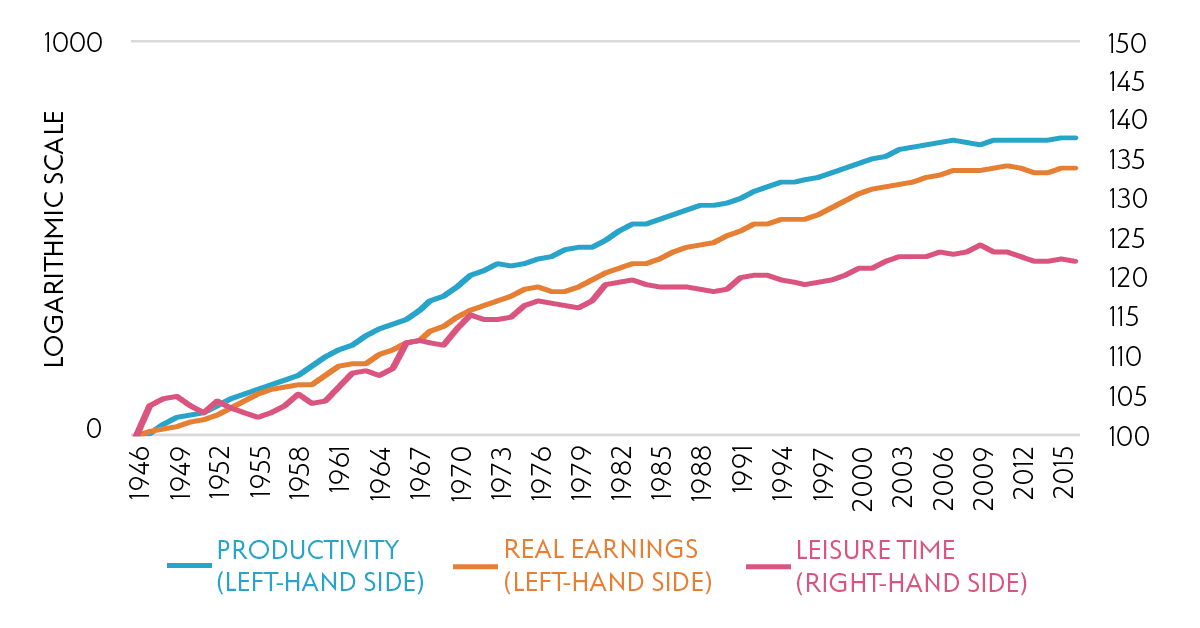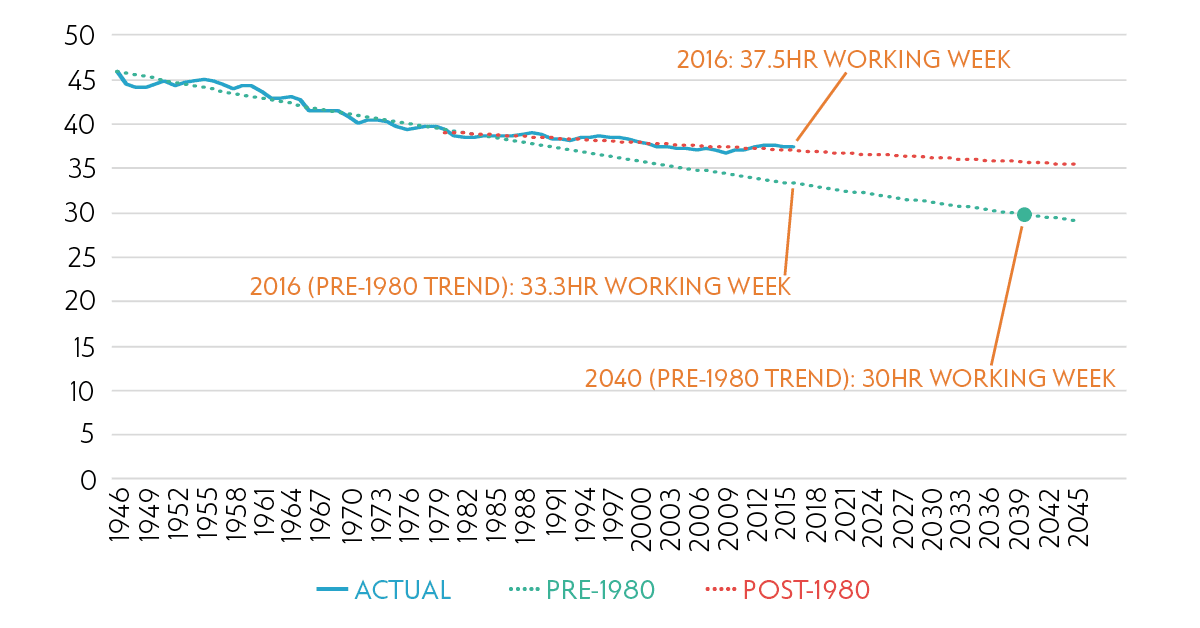Workers have seen increases in leisure time stall since the 1980s despite productivity growth
Had pre-1980 trend in rising leisure time continued, UK workers would be working half a day less than they do today
12 September 2019
Workers have seen increases in leisure time stall since the 1980s despite productivity growth
New analysis from the New Economics Foundation has found that had pre-1980 trend in rising leisure time continued, UK workers would be working half a day less than they do today
Since the 1980s, productivity increases have translated into far slower gains in leisure time for workers according to new analysis from the New Economics Foundation (NEF). The failure for workers to be given shorter working hours hasn’t been compensated with higher wages, which have broadly tracked productivity increases and the flatlined since the financial crisis a decade ago.
As part of a new project due to report later in the autumn, NEF has been studying the decades’ long relationship between productivity, wages and leisure time. The analysis published today represents a contribution to the growing evidence base that the economy is productive enough to sustain a move towards a world of less work.
The analysis shows that during the decades up to the 1970s, a constant rate of increase in productivity has been associated with equally consistent increases in both earnings and leisure time. But since the 1980s, increases in leisure time peel off into comparative stagnation without a faster increases in earnings to compensate.
Since the 1980s, productivity gains appear to no longer translate into significant increases in leisure time
Respective indices for productivity, GDP per hour worked (left hand axis, logarithmic scale), average hourly earnings (left hand axis, logarithmic scale) and leisure time for full-time employees (right hand axis), 1946 – 2016, 1946=100

Source: NEF calculations using Bank of England (2018) ‘A millennium of macroeconomic data’ https://www.bankofengland.co.uk/statistics/research-datasets
NB: for leisure time we use a proxy based on the average hours worked by those in full-time employment subtracted from 84, which we take as a constant for average weekly waking hours
If the pre-1980 trend in increased leisure time had continued, workers would now be working 13% — or half a day — less than they do today. This would be roughly in line with equivalent annual working hours in Germany. If the same trend were to continue further, the UK would be on track to work 20% less by 2040 – in other words, the equivalent of a 30-hour or a 4‑day working week.
If the pre-1980s trend had continued, the UK would be on course to reach the equivalent of a 30hr week by 2040
Average weekly hours for full-time employees, with both the pre-1980 and post-1980 trend lines, 1946 – 2045

Source: NEF calculations using Bank of England (2018) ‘A millennium of macroeconomic data’ https://www.bankofengland.co.uk/statistics/research-datasets
NB: projected trend lines based on simple bivariate regression
Aidan Harper, Researcher at the New Economics Foundation, said:
“Throughout the history of industrial relations, workers have fought for and won increased pay, better conditions and shorter hours through unions. But the balance of power has shifted significantly since the early 1980s and we are spending more time at work as a result.
“We know that we have been living in an economy which has grown substantially over the past 40 years, yet reductions in working time have stalled. The same pattern has not been repeated in countries where workers and trade unions have retained more of their rights. Today we’re publishing new analysis demonstrating the decoupling of productivity from leisure time in the UK.
“Behind this economic case is a story of historical injustice. We are pleased to be part of a growing movement of voices building a new politics of time to ensure that workers can take back the time they are owed.
Contact
Becky Malone, becky.malone@neweconomics.org /07925950654
Notes to editors
The full analysis is available athttps://neweconomics.org/2019/09/increases-in-leisure-time-have-decoupled-from-productivity- increases and https://neweconomics.org/2019/09/the-time-were-owed
The New Economics Foundation is a charitable think tank. We are wholly independent of political parties and committed to being transparent about how we are funded.
Image: Unsplash
Campaigns Shorter working week
Topics Work & pay Macroeconomics






